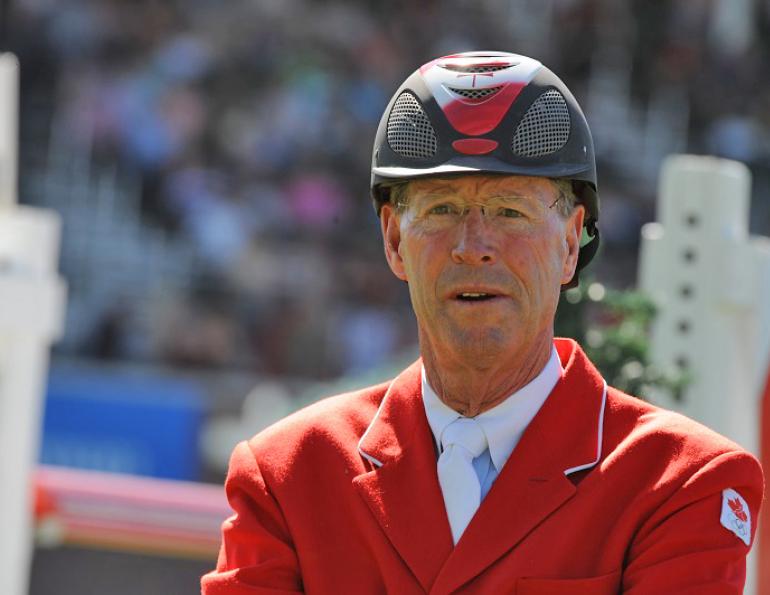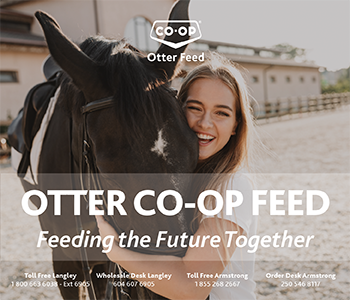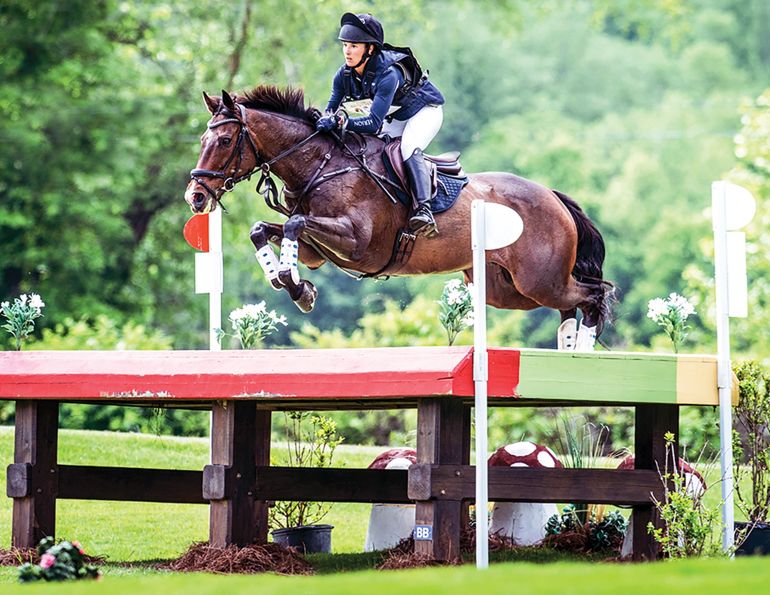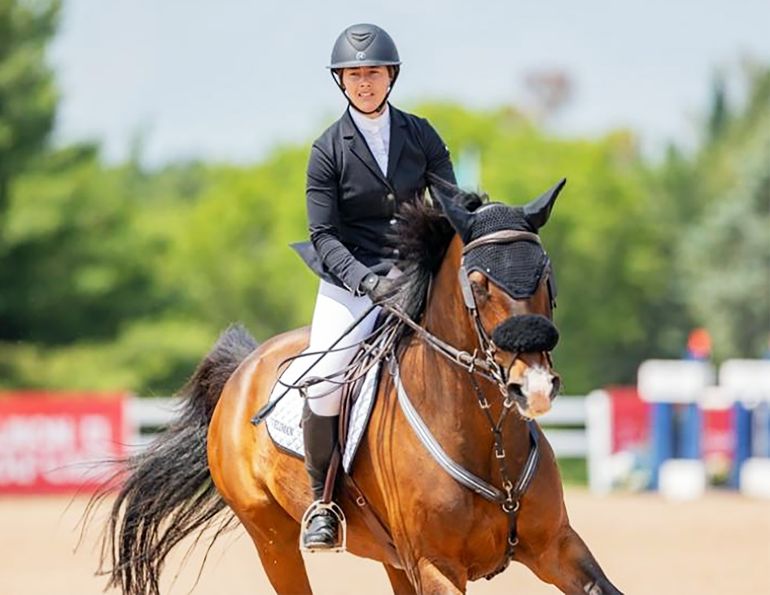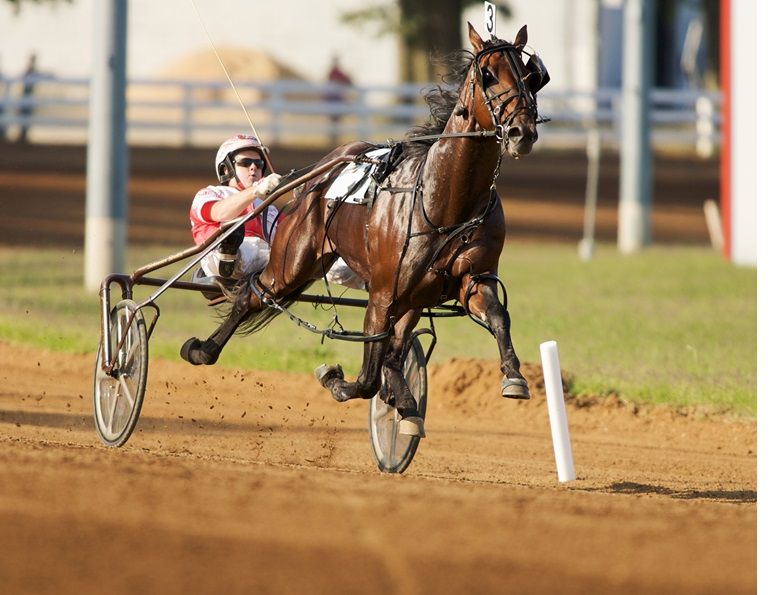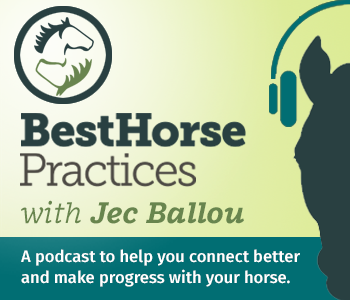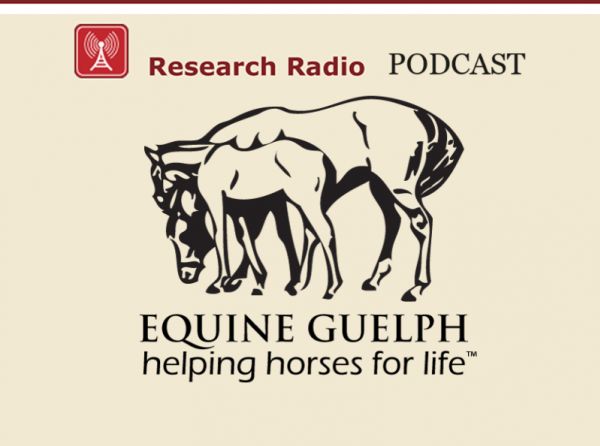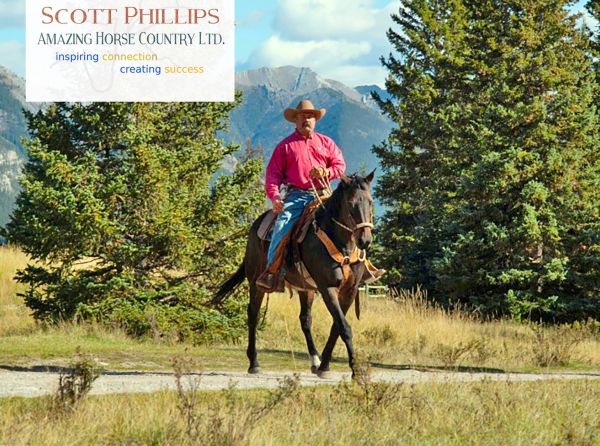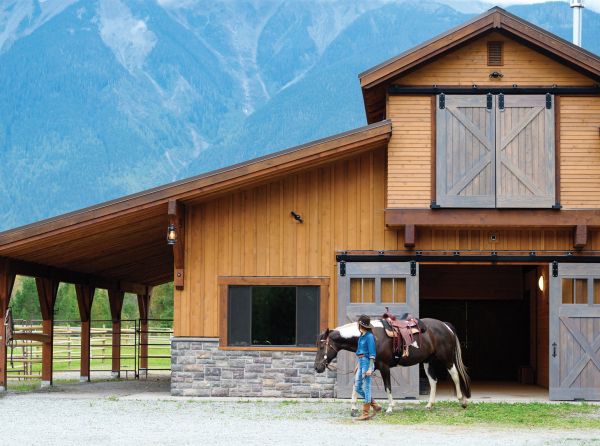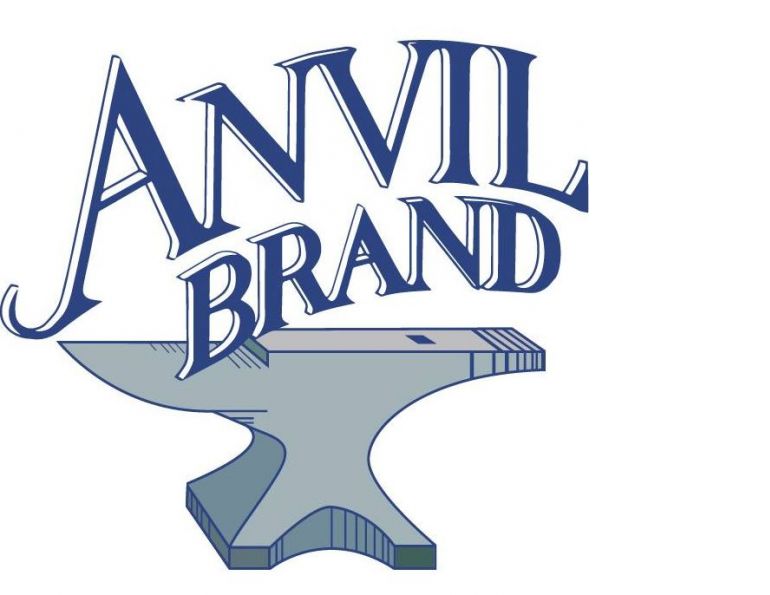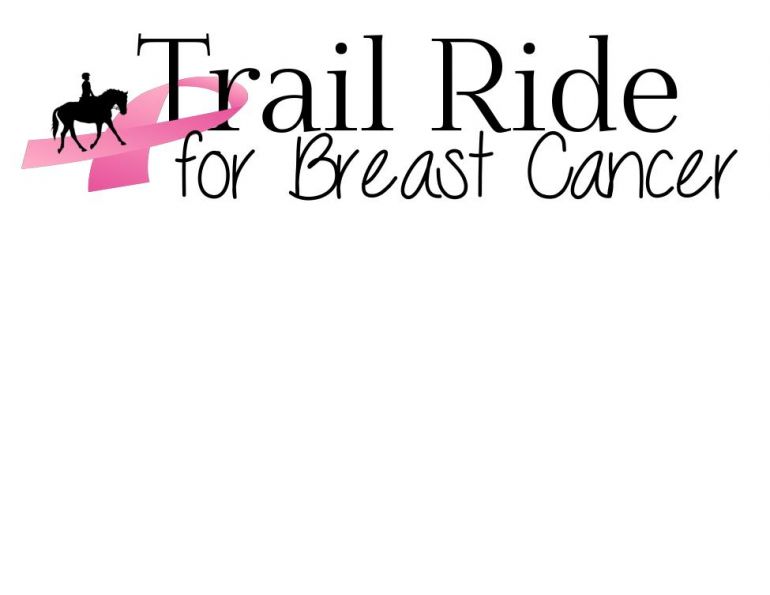By April Clay, M.Ed., Registered Psychologist
You can imagine how thrilled I was to snag Captain Canada for an interview. It only took several minutes of carefully calculated stalking, a charming but direct approach and perhaps a little unabashed begging.
Then he was mine for forty-five minutes or so, way past my initially allotted ten minutes. Thankfully, it turns out Ian loved to talk about his mental game. I think everyone can learn something from what Canada’s most successful rider had to say about the psychology of his ride.
Natural mental skills
Some years ago Ian says he learned about the concepts of sport psychology, and what he realized somewhat surprised him. Ian surmised that he had intuitively come to develop the mental skills needed to establish his competitive edge. “It was interesting to have what I already knew and did categorized and labeled for me.” While Millar stated his skills seemed to come naturally to him in one way, he did point out they were honed by years of experience. In other words, discipline and commitment were necessary, which is good news for all riders who aspire to finesse their competitive edge.
One all-important skill Ian feels is particularly solid is his ability to focus, a task which can be especially difficult at the elite level where distractions and people wanting your attention seem to multiply. Consider the challenges to your own focus and multiply those by ten, and you will start to have a good idea of what top riders are dealing with — the media, autograph hounds and misguided well-wishers to name a few.
“I tend to be a fairly (mentally) present and focused individual anyway, which I think all top athletes are. When I am focusing on a particular competition, I don’t want to deal with the outside world. I just want to deal with my horse, my groom and my trainer, that’s all.” Ian added that he uses his team to assist him with protecting his focus. “All the people around me, I tell them they have to be blockers.” And, lucky for me, because if I had waited an extra day to interview him, I too would have been blocked. “Tomorrow I would avoid you because you would drain my focus. Even if I had an extra hour, I won’t let it be altered.”
If you watch professional riders like Ian, you can see the transformation from different types of focus. From what I did observe of him during the Spruce Meadows Masters’, I would venture to say that Ian has several well-developed ‘selves’. That is, the ‘performer self’, the ‘media self’, the ‘businessman self’ and certainly his ‘regular self’ which seemed to reveal an element of humour and lightness needed to maintain the strenuous goals of the other three.
Because he knows his horses so well, Millar is able to focus on giving them what they need to feel good about entering the ring. Photo: Robin Duncan Photography
Let’s not forget the horse
To Ian, the skills associated with sport psychology are all fine and well, but he cautioned that you have to remember the horse element. A smart rider realizes the connection between his or her own energy and that of their mount, and further, can use this to their advantage. “The kayak or the baseball bat doesn’t care; the horse is a different story.” What many refer to as the zone or optimal level, he explained, has to include what’s good for the horse.
“There are times when I may be sitting on a horse that needs more energy,” he said. “So I do this by changing my thoughts to how important the competition is, how much we need to win. This energy is transmitted to the horse and he changes. Likewise, I may have a sensitive horse who needs to come down a bit, so I focus my thoughts on what a beautiful day it is, what a pleasure it is to be out there, to lighten things up.”
This ability to use your mental state to affect that of your equine teammate is definitely a higher-level psychological skill. You must know yourself and your horse inside out for this one. Even more difficult, you must sometimes give up what may be best for you to help your horse. I have seen countless riders focus only on what makes them feel good to enter the ring and not recognize this is not working for their horses. If you are all revved up with energy but your sensitive horse feels like his mind is about to explode — well, you know what will likely happen. Ian has managed to develop this ability through many years, many experiences, and many horses.
Ian, however, sees himself in part as having a character that lends itself naturally to working with the horse. His quiet confidence and mental flexibility make it easy for him to read and work with a variety of mounts. “You have riders who are outstanding technicians (yet) can only get on a certain kind of horse. And have other riders who have varying degrees of flexibility. It’s like people who can really work a room; they can usually also jump on a wide variety of horses. It’s character and learned skills combined.” But make no mistake, even if you sit here now reading and thinking ‘that is not me’, it can be. A stable sense of confidence can and does also come from targeted awareness, brutal honesty and setting challenging goals for yourself.
Millar-style preparation
But what is at the real heart of Ian’s consistent success in the ring? I knew I might have hit the answer to this question when his ever intense and earnest gaze became surprisingly more so. “It’s all about the ‘P’ principle,” he offered with a knowing grin.
The “P” principle is simple at first glance, and goes like this: “proper preparation prevents poor performance.” But nothing Millar-style is ever so simple. This man takes preparation to new heights. He can list every skill a horse needs to possess and how he can teach that skill. When I first heard this, I thought it to be remarkable common sense — but I also realized how many riders miss naming this goal. Again, there seems to be a propensity among many riders to focus too much on development of the self rather than development of the horse-rider team.
At competitions, Ian does not entirely relax between rounds — even this time is carefully allocated. He spends his off-horse time at the shows carefully studying every horse-rider combination so he may be better equipped in a jump-off. He studies and studies, he says, sometimes to the point of obsession. Ian says he wants to deal with all the controllable factors well ahead of time, as this leaves him freer to ride the moment. Preparation is at the core of his psychology of sport. The ability to be a good student of the sport, in every way, is his advice to up and coming riders.
“Its like this: if you know the subject backwards and forwards, are you nervous about the exam?”
Ian’s son Jonathon, already an accomplished international rider himself, smiled broadly when asked about the “P” principle. “We were here days ahead of everyone else”, he sighed. “He almost over does it... well, maybe not.”
Setting the field apart
Finally, Ian offered some insight into what may separate the good riders from the great. He summed it up like this: “the last 20 percent of anything you do requires 80 percent of your effort.” There are those who will be happy at that 80 percent and just stay there, he explained, thinking that’s good enough. But that last little bit of striving is where the passion and challenge come in — for this last 20 percent. Not every rider has this, he believes, but you can tell Ian relishes reaching for the prize it offers. It’s where, as he puts it, “riding turns to art”. And for anyone who has watched his career, “artist” seems a most fitting moniker, indeed.
To read more articles by April Clay on this site, click here.
Main photo: Robin Duncan Photography



